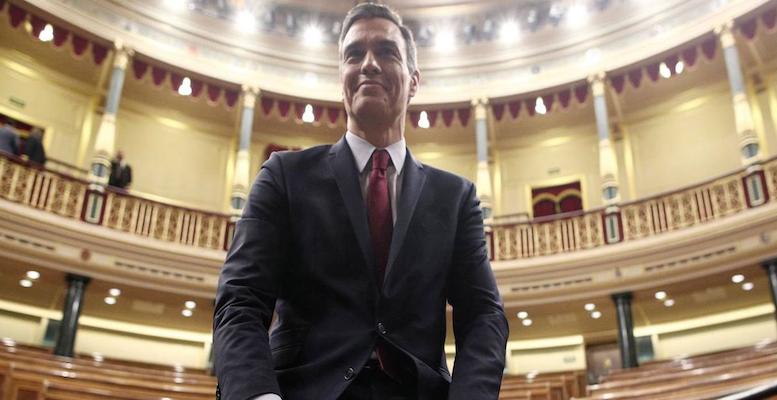Fernando González Urbaneja ! The no-confidence motion against the government led by Ramón Tamames and promoted by the parliamentary group VOX will conclude this Wednesday with an unfavourable vote for the promoters and without major consequences, beyond two parliamentary sessions in which Sánchez has deployed the familiar arguments about the achievements of the government and the incompetence of the opposition, especially the one who was absent, namely Nuñez Feijóo. The motion ends and that’s it, no consequences, no learning, no agreement.
If there was an unforeseen variant, it was the presentation of the electoral programme of the platform headed by Yolanda Díaz, disguised as a ministry-by-ministry defence of the government. A prepared speech with praise for the government and for herself. Yolanda Díaz’s speech was the most relevant aspect of the motion, as it was a challenge to the fractious Podemos members reluctant to accept the “Sumar” formula with the dissolution of other acronyms, and also an undisguised challenge to Sánchez himself and the PSOE, as the new platform makes no secret of its claim to lead the left. Yolanda Díaz’s speech deserves a specific analysis, as the selection of data she includes responds to the strategy of handling statistics à la carte, mixed with statements of general principles that are not overly debatable.
It was known beforehand that the motion was destined to fail, but some expected an interesting debate between the professor-candidate and Dr. Sánchez. The president of the government appeared with speeches prepared in advance with a well-known double axis: how good my government is and how incompetent the opposition is! Nothing new, no surprises, enough statistics duly shaken up to sing what the interpreter is interested in. But with generosity in time, far from synthesis. No new idea, no attempt at a proposal with a chance of agreement, reciprocal accusations that neither move the mill nor produce flour.
Perhaps the format is of little help, since the government’s powers of defence and self-aggrandisement are powerful and the proponent’s ability to convince is very limited, among other reasons because it is known a priori that he has no chance of success. Nor was Tamames interested in going beyond his introductory speech. What was not foreseen was Yolanda Díaz’s intervention as the main protagonist of the session, displacing the main contenders. So much of a protagonist that Tamames opted to thank her for the lessons she had received (ironically), avoiding entering the debate with the promoter of “SUMAR”, who was once a fellow activist.
Both the debate between the main protagonists and the speech by the unexpected Yolanda Díaz, or rather their respective monologues, serve to open (if it is not already open) the campaign for the general elections to be held at the end of the year. A campaign that will be even or odd, to determine which bloc manages to win enough seats to govern. It will also determine who leads the left, because Yolanda Díez’s speech enables the hypothesis of a sorpasso on the left. What Spaniards are going to decide is whether to continue with those who are there or allow others to enter, including Sánchez’s retirement.
The upcoming municipal and regional elections in twelve autonomous communities remain in the background, in what they should be, which is none other than the election of mayors, councillors and regional parliamentarians based on the personality and character of their candidates.
In conclusion, the motion has been a stage for the opening of the electoral campaign; it was not censorship per se, but the use of a constitutional instrument for other interests. VOX remains as a mere instrumental accident, with a more moderate Abascal in the forms, and little else apart from a PP in expectation, considering that these days do not correspond to them.





